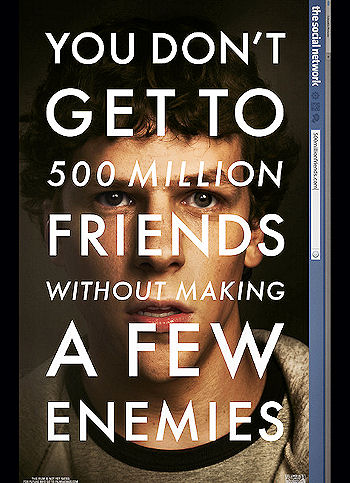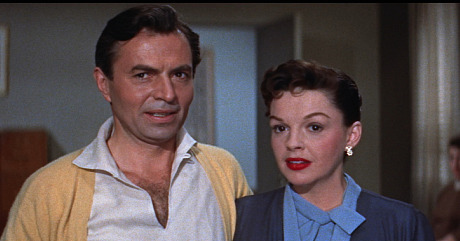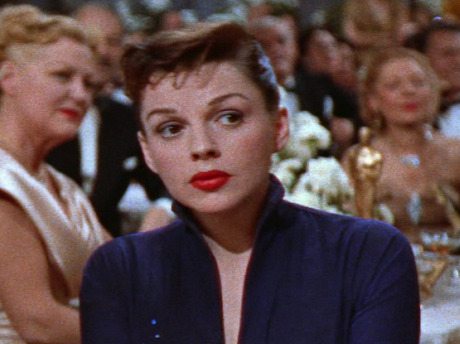Yesterday Awards Daily‘s Sasha Stone riffed on Gregg Kilday‘s 5.18 Hollywood Reporter piece about how the 2010 Oscar field is shaping up at the half-year mark. So premise- and structure-wise I’m going to tee off on them , but with thoughts and suggestions of my own. I can pretty much do anything I want within the bounds of reason and rationality.
The best 2010 films I’ve seen thus far for their own merits (i.e., forget the awards race) are Alejandro Gonzalez Inarritu‘s Biutiful (Cannes), Doug Liman‘s Fair Game (Cannes), Olivier Assayas‘ Carlos (Cannes), Aaron Schneider‘s Get Low, Noah Baumbach‘s Greenberg, Roman Polanski‘s The Ghost Writer and Philipp Stolzl‘s North Face.
The best documentaries I’ve seen so far are Charles Ferguson‘s Inside Job (Cannes); Kate Davis and David Heilbroner‘s Stonewall Uprising; Vikram Jayanti‘s The Agony and the Ecstasy of Phil Spector; Sebastian Junger and Tim Hetherington‘s Restrepo; and Don Argott‘s Art of the Steal.
The leading Best Picture Oscar candidates at this stage appear to be Inception, Toy Story 3, Fair Game, Tree of Life, Biutiful, The Social Network, Get Low, Hereafter, True Grit and maybe London Boulevard. If there was justice and fairness in the universe Greenberg and The Ghost Writer would be likely nominees also, but of course they won’t be.
Stone put her Best Picture contenders into certain categories that I’ll adhere to also.
ALREADY SEEN:
Toy Story 3: I don’t care how good it is or how much money it makes or how many people say it deserves to be Best Picture nominated. (Which it may well be.) In the final analysis it’s a “Mexican” animated feature that needs to stay on its side of the Rio Grande, and there’s nothing the least bit wrong with that. Actual Mexican films and filmmakers (Bunuel, Inarritu, Cuaron, Del Toro) are as good as cinema gets, in my view, and animated features, in turn, also have their own distinctions and their own realm to maintain.
Shutter Island: Forget it.
Winter’s Bone: The award potential here is for Jennifer Lawrence in the Best Actress category.
Fair Game: “A stirring, suspenseful and immensely satisfying adult drama, brilliantly directed by Doug Liman and acted by Sean Penn and Naomi Watts,” I wrote in Cannes. “The complexity and intelligence brought to bear upon the story of Joseph Wilson and Valerie Plame vs. the Bush administration — a tale of courage, cowardice, betrayal and bureaucratic denial all wrapped up into one — still came as a surprise. I really and truly wasn’t expecting it to be quite this deft and assured. It seems to me like a revival of the spirit of the paranoid Alan Pukula of the ’70s with governmental-spook flavorings that harken back to Costa-Gavras and John LeCarre (or, more particularly, the British TV adaptation of Smiley’s People). This is Liman’s best film by far, and a Best Picture nomination waiting to happen.”
Wall Street 2: Not a chance. The Fox guys themselves will tell you it’s just a movie and not an awards contender. No shame in that. (Opening 9.24)
Blue Valentine: Deserves a Best Hairdressing Oscar for the way it simulates baldness in Ryan Gosling‘s character when he’s “older.” Acting-class acting by Gosling and Michelle Williams will gather support. It’s a very cool Cassevetes-type personal pic, well directed by Derek Cianfrance, that drove me up the wall when I saw it in Sundance. (Weinstein Co., 12.31.)
Another Year: Missed Mike Leigh‘s film in Cannes. Heard it was good but a bit slow and boring, even. But Leigh always knows what he’s doing. No comment beyond that.
The Kids Are All Right: Stone says it’s a “maybe” in terms of Best Picture contention. I’m here to tell you this film has no chance in that regard. I know what Best Picture contenders walk and talk and sound like, and I’m sorry but this one, as well-liked as it is, just doesn’t have it. (Opening 7.7.)
Biutiful: Alejandro Gonzalez Inarritu‘s film “is a sad and deeply touching hard-knocks, lower-depths drama in the tradition (or along the lines, even) of Roberto Rosselini‘s Open City or Vittorio DeSica‘s The Bicycle Thief,” I wrote in Cannes. “It’s about love and caring and continuity and carrying on among those who have it toughest, and dealing with guilt and tradition and the approaching of death and all the rest of the stuff that we all carry on our backs. Every actor is exactly right and spot-on in this film, but Javier Bardem gives a truly magnificent performance in the title role of an illegal migrant labor and street-vendor manager-facilitator.”
PICS WITH MOST PROMISE, SIGHT UNSEEN:
Inception: Definitely Best Picture material, partly for what it may be and partly as a payback for the Dark Knight Best Picture snub. (Opening 7.16)
The Social Network: Definite Best Picture possibility….maybe. Or not. You can obviously only tell so much from a script. But the theme is strong, and the pedigree of everyone involved is top-of-the-line. (Opening 10.1)
Secretariat: Period horse-racing drama starring Diane Lane from director Randall Wallace. Could be fine on its own terms, but no chance on awards circuit. (Opening 10.8)
Hereafter: Word around Peter Morgan‘s script, which deals with after-vibes and possible communions with death, has been a bit soft. Clint Eastwood directing, Matt Damon and Bryce Dallas Howard costarring. Nobody knows anything. (Opening 10.22)
Morning Glory: I don’t know anything. (Opening 11.12)
Love and Other Drugs: Definite likelihood for a Best Actress nomination for Anne Hathaway as a Parkinson’s disease sufferer. She and Jake Gyllenhaal play lovers in this Pittsburgh-set period drama (set in the ’90s) about the pharmaceutical industry. (Opening 11.14)
Next Three Days: Doesn’t appear to be an award-calibre thing — seems like a straight “movie.” Paul Haggis wrote and directed this remake of a 2008 French film called Pour Elle, about a husband trying to free his wife who’s been jailed on a bum rap. Russell Crowe and Elizabeth Banks costar. (Opening 11.19)
The Extra Man: Barring a miracle, Kevin Kline is out, over, not in the room. (Opening 7.30)
Middle Men: Forget it. (Opening 8.6)
Eat, Pray, Love: Too chick-flicky, too gay, too escapist, too travelogue-y. Big box-office but forget the awards circuit. (Opening 8.13)
The American: A possibly first-rate genre thriller from the esteemed director of Control, Anton Corbijn. If it was seen as awards quality it wouldn’t be opening on September 1st.
The King’s Speech: Directed by Tom Hooper, costarring Colin Firth, Geoffrey Rush, Helena Bonham Carter. Weinstein Co. is distributing. No comment but feels a bit minor. A speech impediment? (Opening 11.26)
The Fighter: directed by David O’Russell, Mark Wahlberg and Christian Bale costarring. Know nothing, no comment. Paramount. (Opening 11.26)
The Tree of Life: Does Terrence Malick do Oscar movies? Maybe, maybe not. But you damn sure know he won’t campaign. The film is said to be quite good, possibly Malick’s best since Badlands. Sean Penn, Brad Pitt, dinosaurs. (Opening in November)
Everything You’ve Got: James L. Brooks directing; Reese Witherspoon, Paul Rudd and Owen Wilson costarring. Read half of Brooks’ script & stopped. No comment. (Opening 12.17)
Somewhere: Sofia Coppola apparently delivering an Antonioni-esque mood piece about a jaded actor (Stephen Dorff) and a daughter he’s just getting to know (Elle Fanning) within the sundry realms of West Hollywood’s Chateau Marmont and…uhm, northern Italy. Reserving comment. (Opening 12.22).
True Grit: A rich and savory western stew, to go by the script. No telling anything. Blank slate, no judgment except for the always assured stamp of the Coen brothers. (Opening 12.25)
The Conspirator: “A shooting draft of James Solomon‘s The Conspirator, the Robert Redford-directed drama about Surratt’s trial, [is] obviously a sturdily-written, high-calibre thing. And there’s no missing the grace and gravitas woven into Surratt’s character, which represents a fine acting opportunity for Robin Wright Penn.”
The Way Back: Is Paramount going to release this Peter Weir film in ’10 or ’11? I talked to a guy who saw a research screening three months ago, as I recall.
London Boulevard: William Monahan‘s London-based crime pic reads very nicely. Really nicely. That’s all I know — the rest is air.
The Descendants: Will this Alexander Payne-directed, Hawaiian-set drama come out before 12.31.10?
Conviction: The Betty Anne Waters go-to-law-school, get-your-brother-out-of-jail drama with Hillary Swank.







